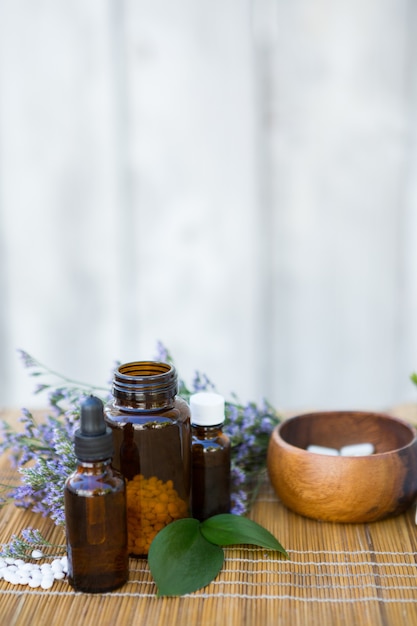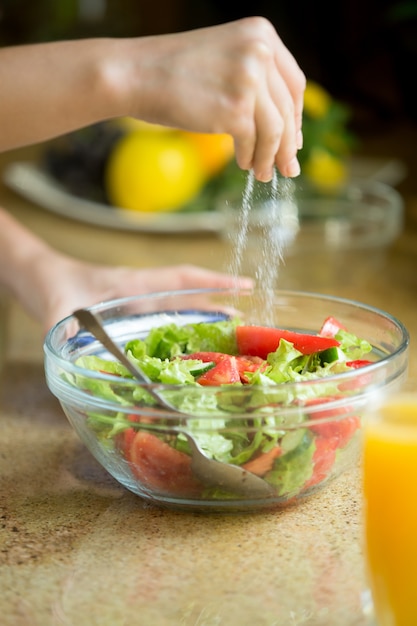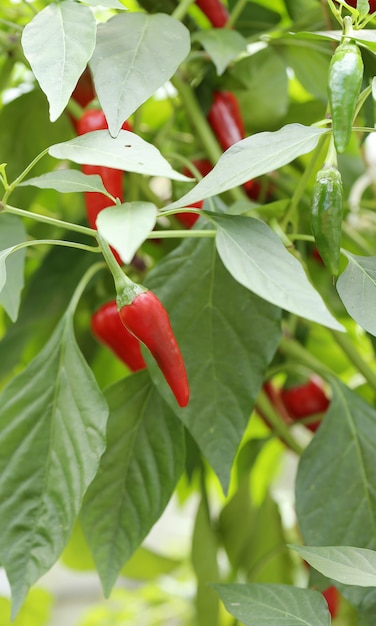5 ยาฆ่าเชื้อธรรมชาติ ลดการใช้ยาปฏิชีวนะโดยไม่จำเป็น
Category: Natural Medicine | January 28, 2020
โดย ดร.ณิชมน สมันตรัฐ ผู้เชี่ยวชาญการแพทย์ด้านเนเชอโรพาธิค (naturaopathic) คนแรกของประเทศไทย จบการระดับปริญญาเอกและมีประสบการณ์การรักษาจากมหาวิทยาลับธรรมชาติบำบัดระดับโลก Bastyr University ประเทศสหรัฐอเมริกา
The disinfectants and antibiotics that we commonly use nowadays are not only made of synthetic substances, as nature also produces natural antibiotics that help kill off germs and bacteria – and humans have used them for thousands of years. We can use these natural remedies instead of antibiotics, as follows:

1. Honey
1. Honey contains active antibacterial properties. In the period of the warring states of China, after cutting off the opposing general’s head, it would be soaked in honey before delivery to the general or the emperor to witness with their own eyes that the person was truly killed, as honey is a natural preservative that can prevent or slow the spoilage. In those wars, the face could still be seen for identity verification purposes. Without honey preservation, the opponent’s head might be rotten before being delivered to the destination and their leaders would not be able to clearly see whose head it is.
Many home remedies such as Thai, Chinese, and Western herbal medicine – have all used honey as an antibiotic. For example, some ferment onion and garlic in honey and have their children eat a spoonful of it a day in order to boost their immune system to prevent colds and the flu.

2. Essential oils
Essential oils are often mixed into various skin care products. Apart from its fragrance, essential oils are natural preservatives which also help maintain the signature scent of the product.

3. Salt
Have you ever heard about the Dead Sea in Jordan? When people swim in the sea they will stay afloat because of its extremely high salt content. And no worries that the salt will be dirty because bacteria and virus cannot survive in salt. Therefore, salt therapy is offered whereby the patient lies in a small flotation tank filled with highly concentrated salt water. Moreover, humans also use salt to preserve foods and prolong spoilage.
Salt in itself is clean, but will become dirty when mixed with dirt and later used, though it is not to be confused with the salt obtained from salt farms, which are clean and can be purchased for use without any worries.

4. Chili
Notice that foods which contain a lot of chilis will prolong their spoilage. Like chili pastes, the spicier they are, the longer they will last - including Korean Kimchi which has chilis as one of its ingredients, since chilis possess antimicrobial properties. Due to this, some eyewashes even add chili extracts into their products.
5. UV from sunlight
Many foods and products are subjected to Ultraviolet (UV) exposure for disinfection. In the old days, people practiced food drying techniques such as making dried fish to slow down the spoilage because all the pathogenic microorganisms present in such foods are eliminated. A blanket you put in the sun will be dried and disinfected at the same time. Also, in the laboratory, if UV light is shone into a tray that contains bacteria, it can be clearly seen that bacteria cannot flourish at that area.
Although all of the abovementioned remedies have antiseptic properties, too much of a good thing can make you sick. For example, consuming too much honey can cause diabetes, having too much salt will increase the risk of kidney disease, eating too much chili can upset your stomach, while overexposure to the sun will increase the risk of skin cancer.
That being said, these natural antiseptics have one other good property, which is that their side effects are not as severe as synthetic drugs.
Compiled by: Winna Rakkarn
Photo credit: Freepik

1. Honey
1. Honey contains active antibacterial properties. In the period of the warring states of China, after cutting off the opposing general’s head, it would be soaked in honey before delivery to the general or the emperor to witness with their own eyes that the person was truly killed, as honey is a natural preservative that can prevent or slow the spoilage. In those wars, the face could still be seen for identity verification purposes. Without honey preservation, the opponent’s head might be rotten before being delivered to the destination and their leaders would not be able to clearly see whose head it is.
Many home remedies such as Thai, Chinese, and Western herbal medicine – have all used honey as an antibiotic. For example, some ferment onion and garlic in honey and have their children eat a spoonful of it a day in order to boost their immune system to prevent colds and the flu.

2. Essential oils
Essential oils are often mixed into various skin care products. Apart from its fragrance, essential oils are natural preservatives which also help maintain the signature scent of the product.

3. Salt
Have you ever heard about the Dead Sea in Jordan? When people swim in the sea they will stay afloat because of its extremely high salt content. And no worries that the salt will be dirty because bacteria and virus cannot survive in salt. Therefore, salt therapy is offered whereby the patient lies in a small flotation tank filled with highly concentrated salt water. Moreover, humans also use salt to preserve foods and prolong spoilage.
Salt in itself is clean, but will become dirty when mixed with dirt and later used, though it is not to be confused with the salt obtained from salt farms, which are clean and can be purchased for use without any worries.

4. Chili
Notice that foods which contain a lot of chilis will prolong their spoilage. Like chili pastes, the spicier they are, the longer they will last - including Korean Kimchi which has chilis as one of its ingredients, since chilis possess antimicrobial properties. Due to this, some eyewashes even add chili extracts into their products.
5. UV from sunlight
Many foods and products are subjected to Ultraviolet (UV) exposure for disinfection. In the old days, people practiced food drying techniques such as making dried fish to slow down the spoilage because all the pathogenic microorganisms present in such foods are eliminated. A blanket you put in the sun will be dried and disinfected at the same time. Also, in the laboratory, if UV light is shone into a tray that contains bacteria, it can be clearly seen that bacteria cannot flourish at that area.
Although all of the abovementioned remedies have antiseptic properties, too much of a good thing can make you sick. For example, consuming too much honey can cause diabetes, having too much salt will increase the risk of kidney disease, eating too much chili can upset your stomach, while overexposure to the sun will increase the risk of skin cancer.
That being said, these natural antiseptics have one other good property, which is that their side effects are not as severe as synthetic drugs.
Compiled by: Winna Rakkarn
Photo credit: Freepik
share





